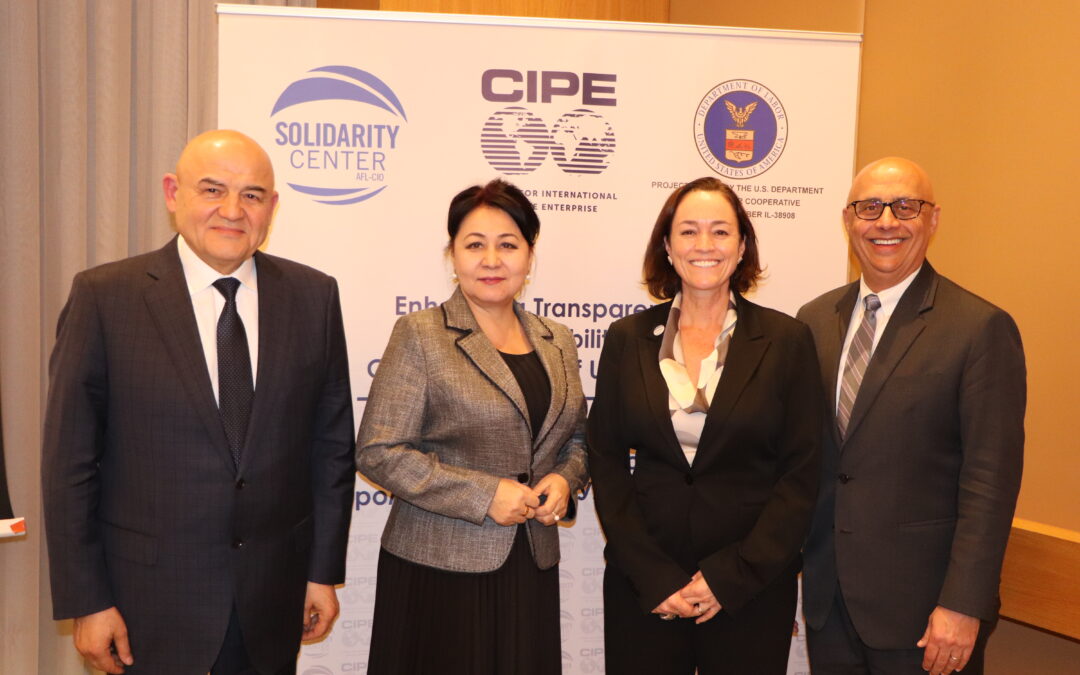
Jan 8, 2024
A groundbreaking cooperative agreement seeking to improve working conditions and prevent forced labor was signed this week for workers, ‘at all stages of cotton and textile production in Uzbekistan.’ Agreement signatories include U.S.-based Center for International Private Enterprise (CIPE), employers’ Association of Cotton-Textile Clusters of Uzbekistan, the Solidarity Center and the Uzbekistan Ministry of Employment.
The two-year memorandum of cooperation is the cornerstone of a new CIPE-Solidarity Center project that was launched at a public event in Tashkent in November. By meeting the sector’s need for an effective reporting and grievance remedy system, and providing an education and incentive system supportive to compliance, the project seeks to build on a 15-year effort that successfully eradicated forced labor in Uzbekistan’s cotton supply chain.
The “Enhancing Transparency and Accountability in the Cotton Industry of Uzbekistan” project—which will be implemented by CIPE and the Solidarity Center through activities laid out in the agreement’s accompanying action plan—is funded by the U.S. Department of Labor.
“The Solidarity Center looks forward to working with CIPE and the Cluster Association to support development of a cotton industry in Uzbekistan that is recognized and rewarded in the global marketplace for upholding labor standards at the highest levels,” said Solidarity Center Executive Director Shawna Bader-Blau at the program launch.
Project goals include to expand stakeholder dialogue to promote transparent market and management standards and employee-oriented accountability systems; establish trust and dialogue among cotton purchasers, producers, workers and the government of Uzbekistan; strengthen Uzbekistan’s cotton supply chain workers’ capacity to identify and effectively resolve labor rights violations through tripartite mechanisms and improved dialogue with employers; improve compliance with international labor standards, including freedom of association and corporate governance provisions; and foster cotton industry sustainability in ways that ensure labor rights are respected and protected.
Under the agreement’s accompanying action plan, program activities will include:
- Developing and piloting worker-led grievance and remedy mechanisms grounded in best international practices for supply chain transparency and management;
- Training workers, managers and employers in the cotton industry on fundamental international standards as defined in core conventions of the International Labor Organization;
- Promoting standards of transparency and commitment to labor rights and good corporate governance by creating a dialogue between stakeholders cotton enterprises, global brands, government agencies and worker representatives.
“We believe that our partnership will support the creation of effective management systems and serves to strengthen social protection, improve labor relations based on international standards and create decent and safe working conditions for workers,” said CIPE Managing Director for Programs Abdulwahab Alkebsi at the program launch.
After years of intense policy advocacy and campaigning, led by Uzbek and international civil society, combined with the Uzbek Government’s political will, state-imposed forced labor is no longer used in the cotton harvest. As a result, in March 2022, the Cotton Campaign ended its call for a global boycott of cotton from Uzbekistan and lifted the Uzbek Cotton Pledge.
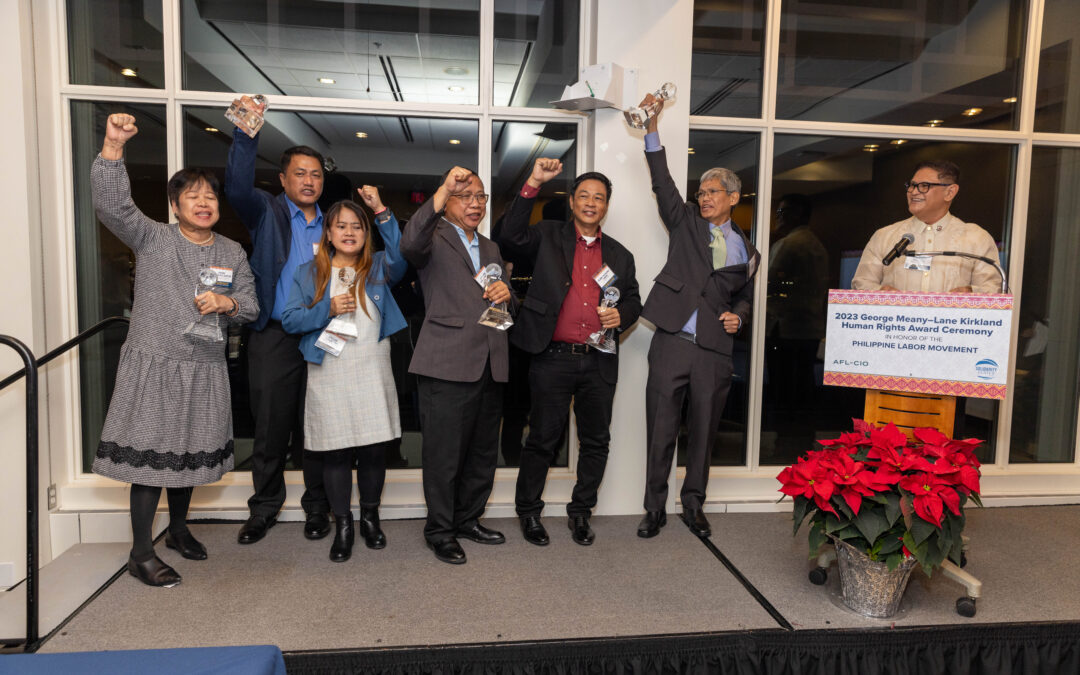
Dec 8, 2023
For their courage and persistence in the face of escalating threats to their own lives, seven delegates representing the Philippine labor movement received the 2023 AFL-CIO George Meany-Lane Kirkland Human Rights Award in a ceremony in Washington, D.C., this week. The award is given annually in recognition of dedication to and effectiveness in highlighting the widespread denial of fundamental human rights at work and in society.
“This award is in recognition of the Philippines labor movement’s resilience, persistence and courage in the face of extreme violence and repression,” said AFL-CIO President Liz Shuler at the event.
More than 70 union members have been killed since 2016, and many more are victims of red-tagging (branding and accusing individuals and/or organizations of being terrorists), illegal firing of union activists and anti-terrorism laws directed at stifling freedom to form unions and bargain.
“The killings are precisely designed to sow fear among workers,” United and Progressive Workers Center (SENTRO) Secretary General Josua Mata told the Solidarity Center.
Persecution has not stopped despite recent changes to the government’s top leadership. Union leader Jude Thaddeus Fernandez, 67, was killed September 29 after a division of the Philippine National Police reportedly entered Fernandez’s home and shot him dead. The murder of Alex Dolorosa—whose role as a union organizer and a paralegal was funded by the Communications Workers of America (CWA)—in April remains uninvestigated like every other extrajudicial killing of a trade unionist in the country.
Workers who are organizing and conducting other union business in the Philippines seek only to build a decent society and life for their families, Trade Union Congress of the Philippines (TUCP) Vice President Luis Corral told the Solidarity Center.
“We are not the enemy,” he said.
In addition to Corral and Mata, the delegation receiving the award for include Alliance of Concerned Teachers (ACT) Secretary General Raymond Basilio; Business Process Outsourcing Industry Employees Network (BIEN) President Mylene Cabalona; Public Services Labor Independent Confederation (PSLINK) President Annie Enriquez Geron; Kilusang Mayo Uno (KMU) Chairman Elmer Labog; and Federation of Free Workers (FFW) President Sonny Matula. The Solidarity Center has a 25-year partnership with the Philippine labor movement, including current support for an organizing campaign for low wage, app-based food delivery workers.
“This recognition fortifies our resolve and validates our efforts under the most challenging of circumstances,” said TUCP President and Philippine Congress House Deputy Speaker Raymond Mendoza when accepting the award, “on behalf of all workers in the Philippines, especially those who gave their lives for labor.”
Previous award recipients include United Nations Special Rapporteur on the rights to freedom of peaceful assembly and of association Maina Kiai and the Tunisian General Labor Union (Union Générale Tunisienne du Travail, UGTT), which also won a shared Nobel Peace Prize for its role in brokering Tunisia’s path to democracy during the Arab uprisings.
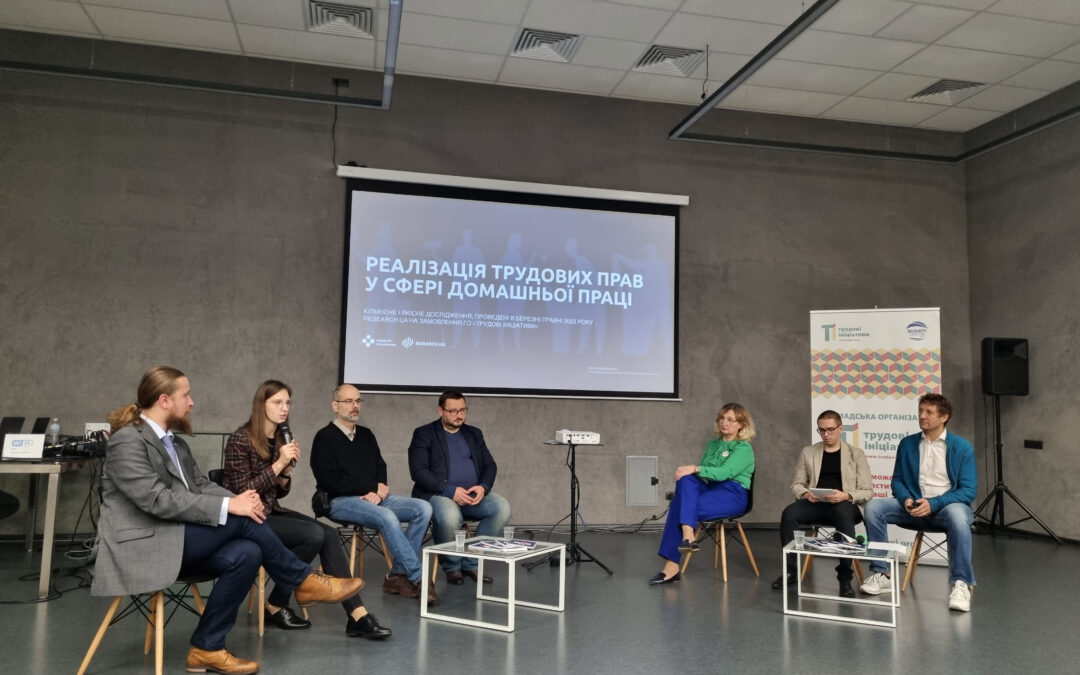
Nov 30, 2023
A new survey—the first in Ukraine to evaluate domestic workers’ working conditions—found that working without contracts and formal recognition has left most survey respondents victim to low pay, wage theft, confusion about employment status, exclusion from the country’s pension system and minimal capacity to exercise their right to freedom of association.
“What kind of pension will we have? God grant that it will be at all,” said survey respondent Kateryna (last name withheld for privacy).
Survey results documenting the pitfalls of domestic worker informal employment was presented to an in-person and virtual gathering of domestic workers, employment agencies and national union representatives last month. Survey results presented to event attendees—who included representatives of the new domestic worker organization, United Home Staff (UHS) and Tetiana Tsyba, Ukraine Member of Parliament and head of the parliamentary working group on proposed domestic worker law Number 5695.
Most survey respondents reported working without the legal protections and pension benefits afforded to formally recognized workers. While some were employed under various forms of contracts—including employment agency contracts (5 percent), civil law contracts (12 percent) or employment contracts (22 percent)—more than 60 percent said they were working without formal terms and conditions of employment.
Additional findings include:
- Almost 60 percent reported wage theft or insufficient compensation for work performed.
- Almost half said they do not get pay increases for overtime or weekend work; a quarter said their employer encourages overtime work without additional pay.
- Almost half said they do not receive paid vacation time.
- 60 percent were unaware of trade unions or other organizations that can represent or otherwise assist domestic workers.
- Most (69 percent) have worked informally throughout their careers, making them ineligible for Ukraine’s pension system.
Many internally displaced people who lost work because of war have become domestic workers, including those previously employed as university professors and schoolteachers. Of those surveyed, more than 60 percent working without a contract reported lower wages during wartime.
The survey was sponsored by the Ukraine nongovernmental worker rights organization Labor Initiatives (LI), to raise awareness of challenges in the sector for workers, support the country’s legislative efforts to formalize domestic work and encourage unions to organize domestic workers. With Solidarity Center support, LI supplies legal and other assistance to Ukraine’s workers and unions.
Nov 29, 2023
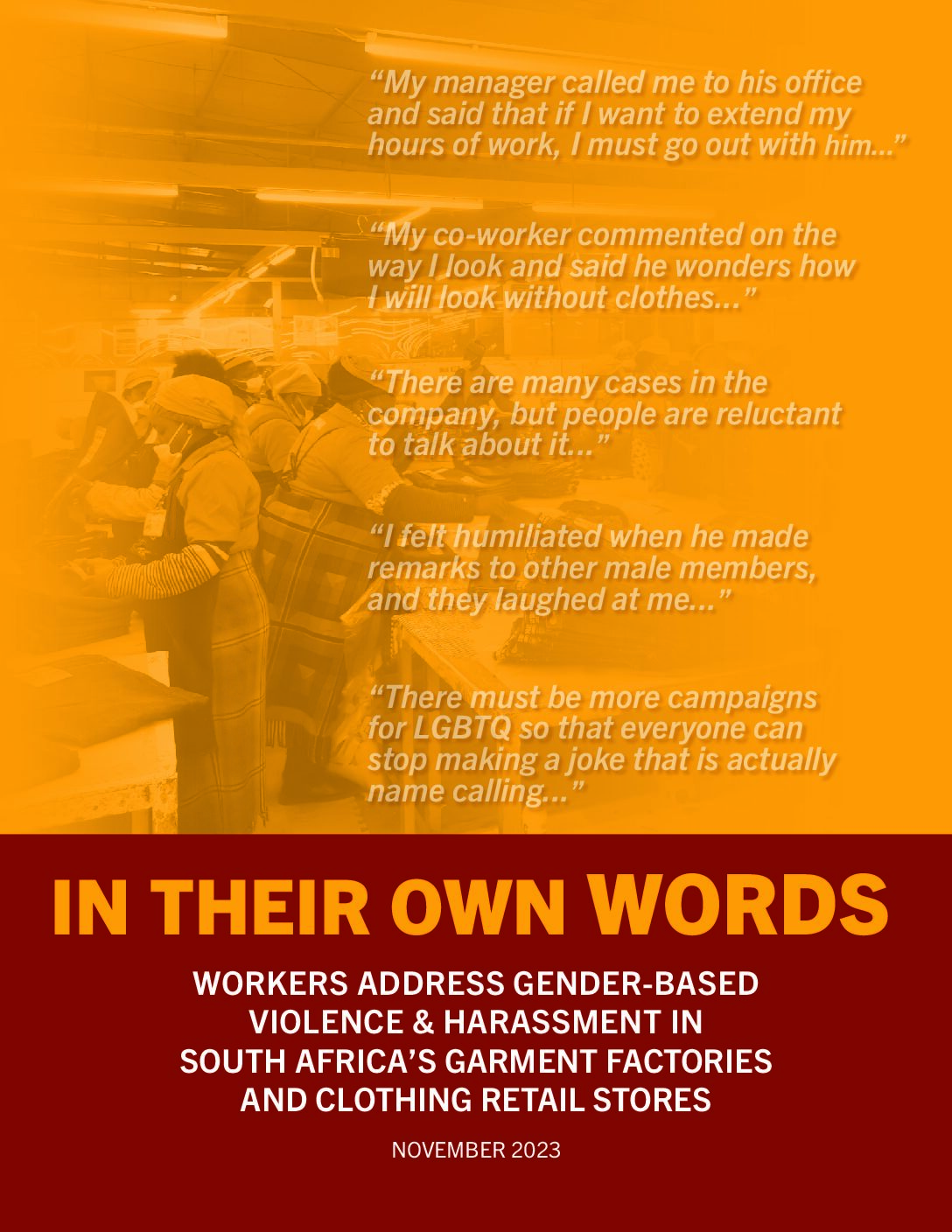 IN THEIR OWN WORDS: WORKERS ADDRESS GENDER-BASED VIOLENCE & HARASSMENT IN SOUTH AFRICA’S GARMENT FACTORIES AND CLOTHING RETAIL STORES
IN THEIR OWN WORDS: WORKERS ADDRESS GENDER-BASED VIOLENCE & HARASSMENT IN SOUTH AFRICA’S GARMENT FACTORIES AND CLOTHING RETAIL STORES
In South Africa, 98 percent of women garment and retail workers surveyed in 2022 said they had experienced one or more forms of gender-based violence or harassment, including physical abuse, unwanted sexual advances, psychological abuse, bullying and rape. To better understand the experiences of women and other marginalized workers in garment and retail industries with GBVH, and elevate their voices in advocacy campaigns, the Solidarity Center partnered with three trade unions and two civil society organizations to conduct participatory action research.
Download it here.
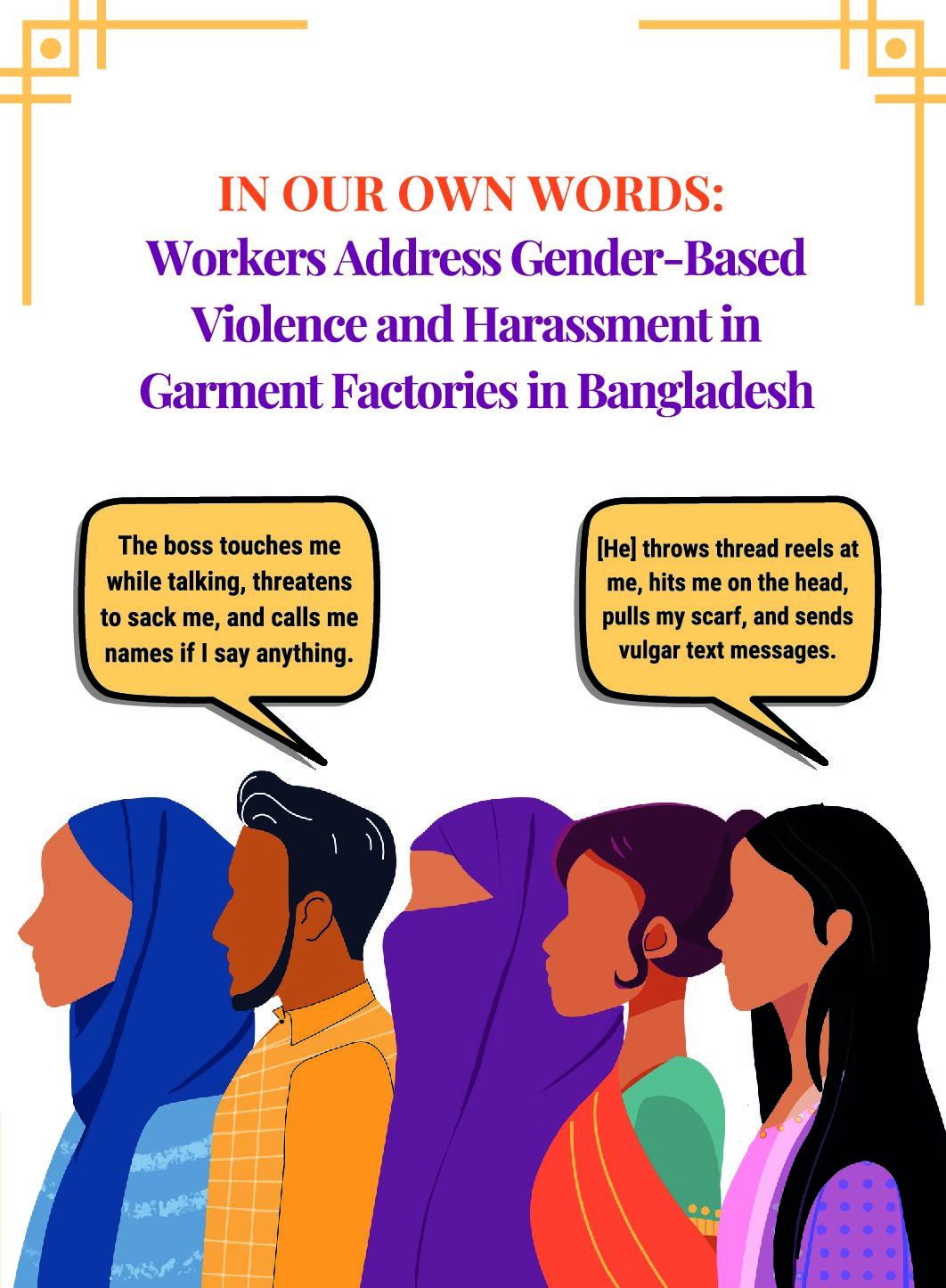 IN OUR OWN WORDS: WORKERS ADDRESS GENDER-BASED VIOLENCE AND HARASSMENT IN GARMENT FACTORIES IN BANGLADESH
IN OUR OWN WORDS: WORKERS ADDRESS GENDER-BASED VIOLENCE AND HARASSMENT IN GARMENT FACTORIES IN BANGLADESH
In Bangladesh, 80 percent of women garment workers surveyed in 2019 reported they had experienced or witnessed sexual harassment, molestation or assault, endured extreme verbal abuse or witnessed a factory manager or supervisor abuse and harass other women in the factory. To better understand the experiences of women the garment industry with GBVH and elevate their voices in advocacy campaigns, the Solidarity Center partnered with six trade union federations and three civil society organizations to conduct participatory action research.
Download it in English and Bangla.
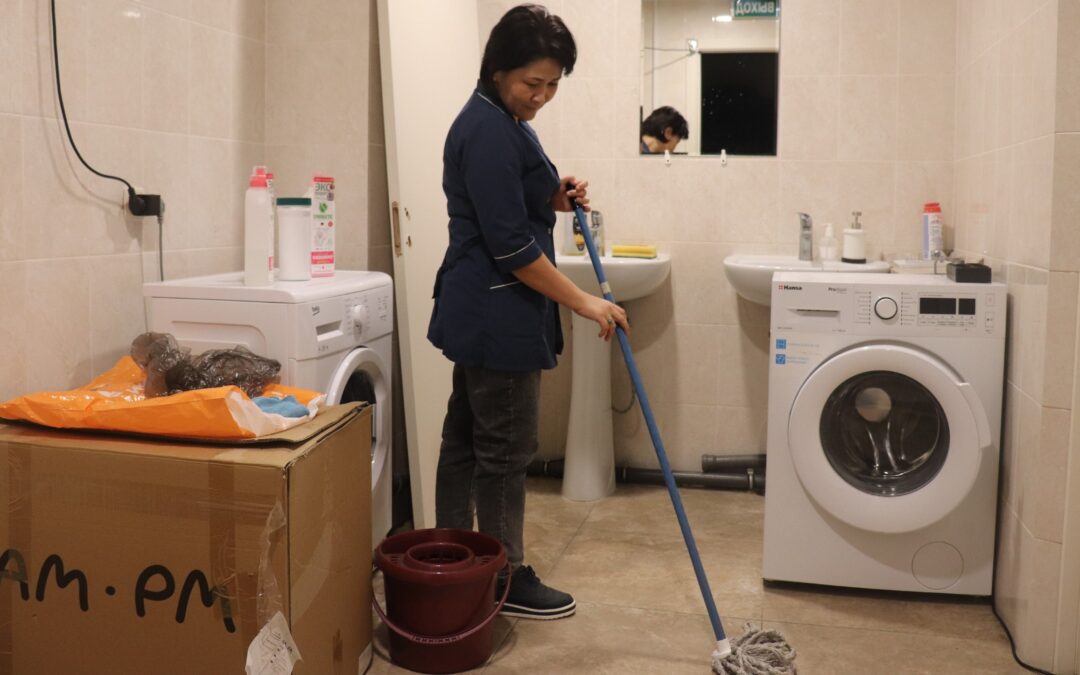
Sep 19, 2023
Women and workers from marginalized communities suffered disproportionately from the impact of the COVID-19 pandemic and a new survey details the effects on Kyrgyz migrant workers in Russia.
The survey of almost 300 Kyrgyz women who are dependent on precarious, low-wage jobs in Russia finds that the pandemic exacerbated migrant workers’ vulnerability to economic precarity and that women migrant workers reported brutal conditions on the job, including sexual violence. Almost half a million Kyrgyz women were working in Russia in 2021.
The survey compiled data from Kyrgyz women working in Russia in caregiving, catering, domestic and janitorial work and garment manufacturing and retail sectors in 19 Russian cities, including Moscow, Novosibirsk and Yekaterinburg. The survey was conducted by local non-governmental organization Insan-Leilek Public Foundation, a long-time partner of the Solidarity Center in advocating for the rights of migrant workers from Kyrgyzstan.
“The pandemic played such a cruel joke on us,” said a survey respondent. (For their protection, respondents are quoted anonymously.) “They start with migrants; they are the first to be fired.”
Respondents reported increased health precarity during the pandemic due to limited non-resident medical services and higher virus exposure while working service jobs, as well as increased financial precarity following mass service-sector and retail layoffs. Without formal written work agreements—common for migrant workers and a violation of their rights under Russian labor law—many lost their incomes without compensation, which increased their food insecurity and other economic hardships.
Rampant Worker Rights Violations, Including GBVH
- Many respondents reported health and safety violations and loss of dignity at work due to migrant status, unregulated use of chemicals and rampant sexual or other gender-based violence and harassment (GBVH) by employers, supervisors and customers.
- Sexual violence was common. Fourteen percent of those surveyed reported rape; two were victims of gang rape in their workplaces.
- Sexual harassment was widely reported. Forty percent of participants said they were subject at work to comments about their bodies, obscene jokes and sexually suggestive gestures. Twenty percent reported violation of their personal boundaries, such as men touching their waist, breasts, buttocks and other parts of the body.
- More than half of the respondents were working without contracts, leaving them without legal protection and vulnerable to the whims of employers—many of whom reportedly refused to sign employment contracts at the time of hiring.
- More than two thirds of the women reported encountered discrimination at the workplace. Of that number, two thirds attributed it to their migrant status; half said it was because of their gender.
- Many respondents reported wage and working conditions in violation of Russia’s labor code, including a quarter of respondents who suffered wage payment delays, half who did not receive overtime pay and four-fifths who were denied paid sick and holiday leave.
- Half of respondents reporting rights violations did not know where to turn for help or were afraid to talk about it.
“I don’t want to seek help and it’s impossible to seek help,” said a survey respondent who reported being touched sexually at work but feared deportation if she reported the abuse.
Based on survey findings, Insan-Leilek made recommendations to the governments of Kyrgyzstan and Russia to better protect migrant Kyrgyz women, including a greater role for the Trade Union of Migrants of the Kyrgyz Republic, pre-departure worker rights training for those migrating to Russia for work and the creation of migrant crisis centers to provide emergency shelter as well as legal, medical and psychological aid. To address GBVH suffered by women Kyrgyz migrants in the world of work, union women are demanding ratification of UN International Labor Organization Convention 190 (C190).
Many Kyrgyz citizens are forced to move to other countries to earn their livelihoods because of limited economic opportunities in Kyrgyzstan, where a third of the population lives below the national poverty line and migrant remittances in 2022 represented 30 percent of the country’s GDP.
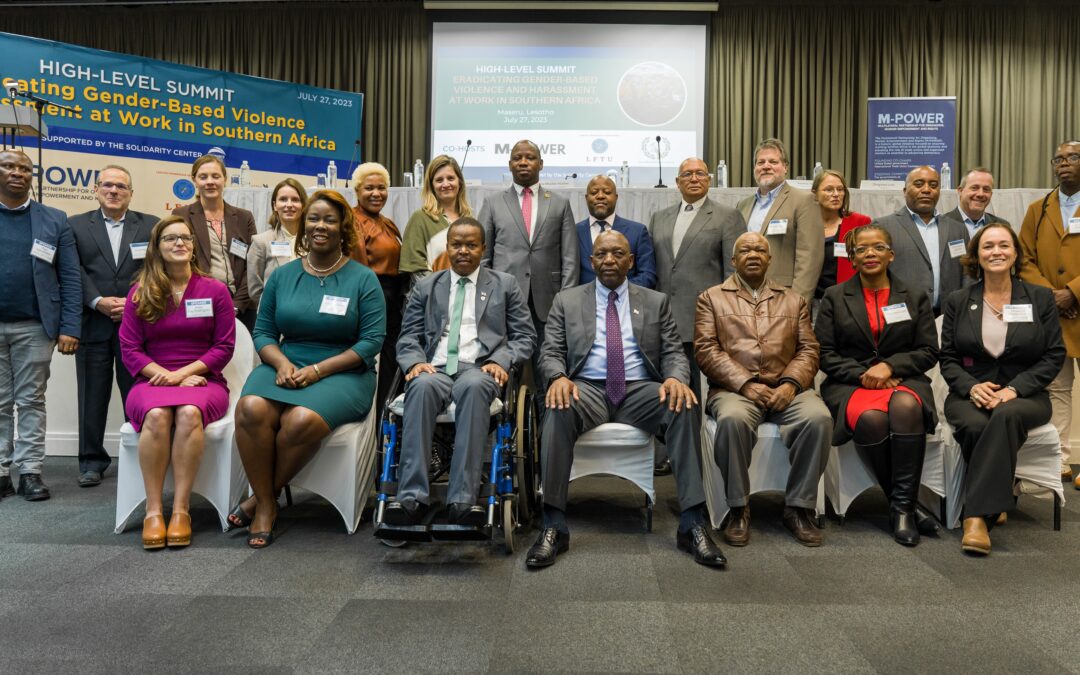
Aug 10, 2023
Millions of workers—most of them women—face intimidation, humiliation, physical and verbal assault, and worse on the job. A July 27, 2023, international summit in southern Africa gathered representatives from the governments of Argentina, Canada, Germany, Lesotho, Spain and the United States—along with dozens of leaders from unions, business and worker and women’s rights organizations—to highlight and advance efforts to end gender-based violence and harassment (GBVH) in the world of work, with a focus on southern Africa.
Hosted by the Multilateral Partnership for Organizing, Worker Empowerment and Rights (M-POWER),* Lesotho Federation of Trade Unions (LFTU) and Lesotho Labor Council (LLC), the daylong summit explored how governments, corporations and unions can eliminate GBVH at work, particularly by ratifying and codifying International Labor Organization Convention 190 (C190) on violence and harassment, and by replicating the negotiated and binding Lesotho Agreements in supply chains elsewhere.
(Photos: Solidarity Center/Institute of Content Engineering)
OPENING SESSION
Kingdom of Lesotho Prime Minister Samuel Ntsokoane Matekane (R) greets U.S. Department of State Special Representative for International Labor Affairs Kelly M. Fay Rodríguez (L) and United States Embassy Lesotho Deputy Chief of Mission Keisha Toms.
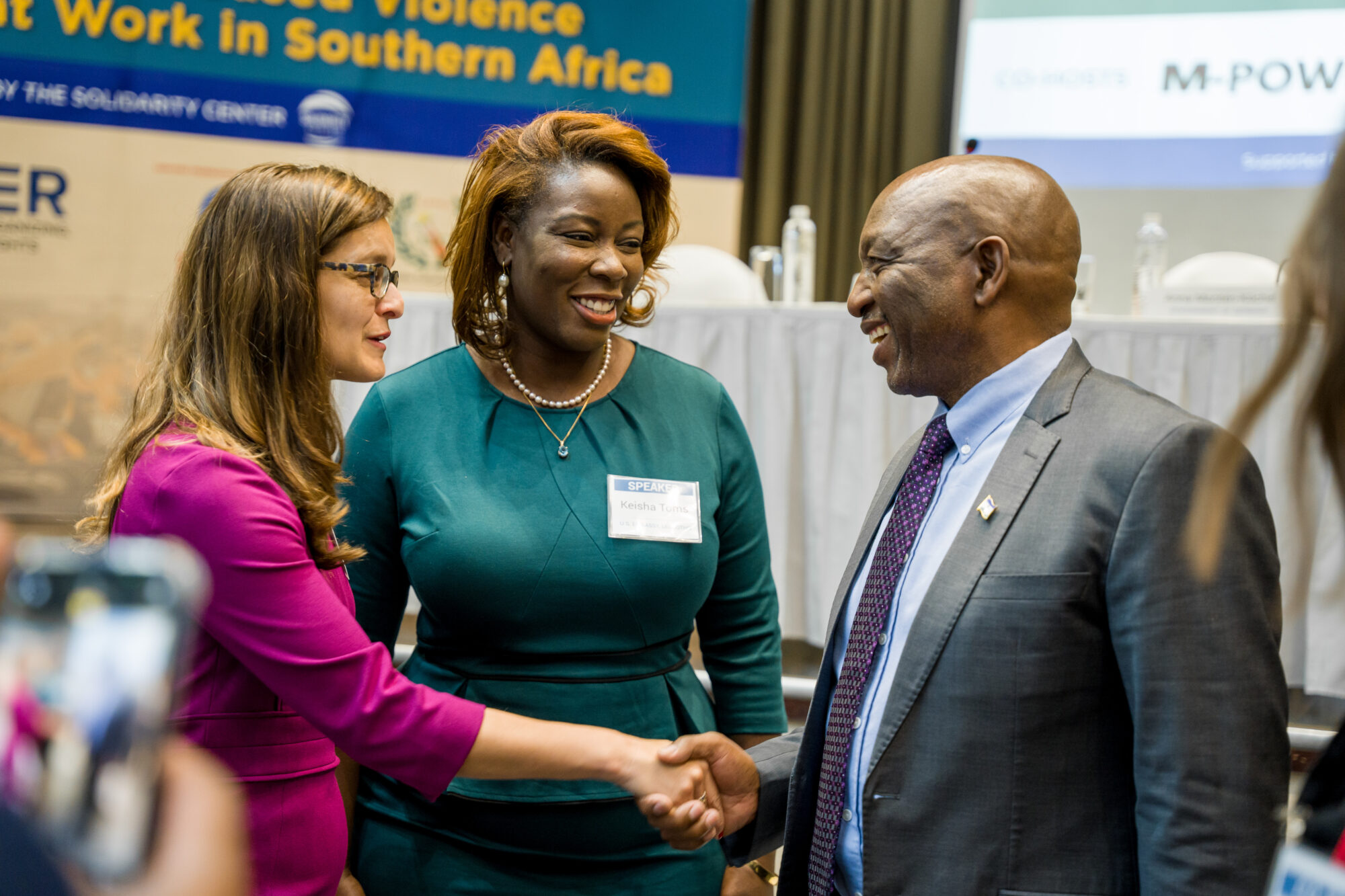
“We are all witness to the ever-increasing instances of gender-based violence and harassment at the workplace, not only in Southern Africa but across our beloved continent,” said Prime Minister Matekane, noting that Lesotho has committed to ethical sourcing through the U.S. African Growth and Opportunities Act (AGOA) and the U.S. Millennium Challenge Compact II.
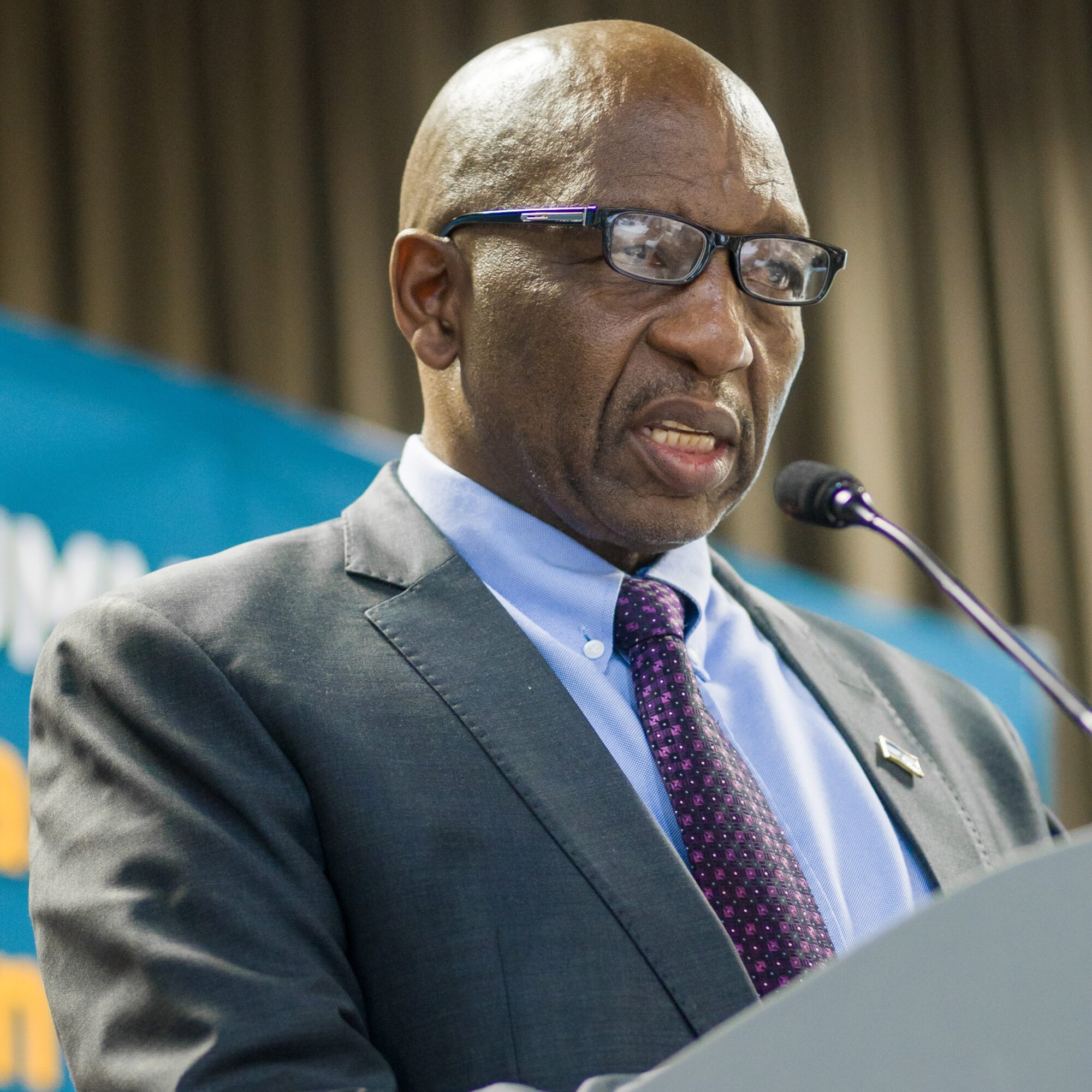
Below: Harry Nkhetse, senior facilitator and leadership coach, Tobaka Consultants, Mountain Peak Business Solutions, and summit co-emcee, with Marieke Koning, co-emcee and ITUC policy adviser.
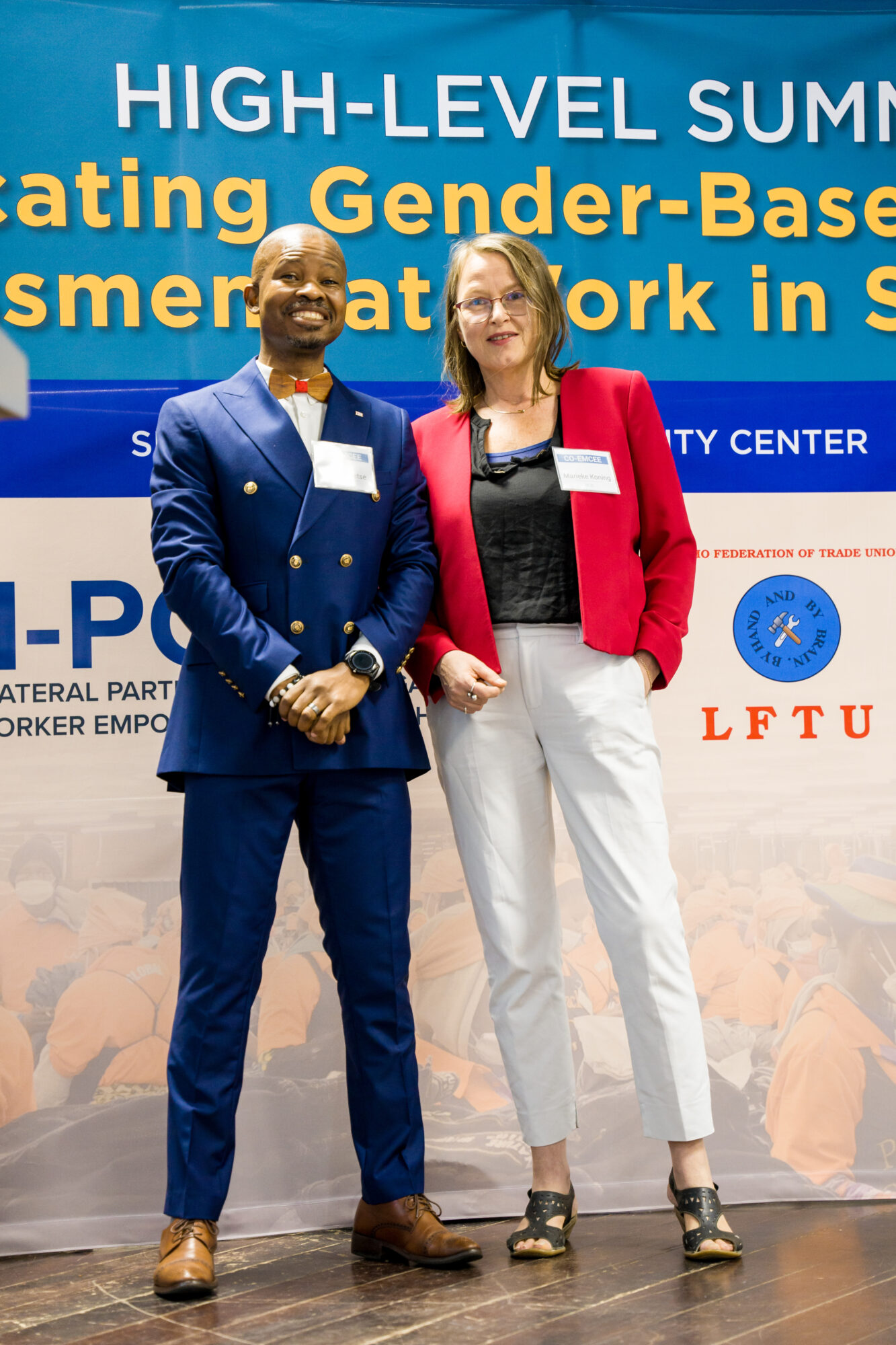
THE ROLE OF GOVERNMENTS IN ELIMINATING GENDER-BASED VIOLENCE AND HARASSMENT AT WORK: C190
Eradication of GBVH is an urgent, compelling global challenge that will only be resolved when workers have the power to bring about change, for which they need rights to freedom of association and of collective bargaining, said Marieke Koning. The panel included government representatives from Argentina, Germany and Lesotho.
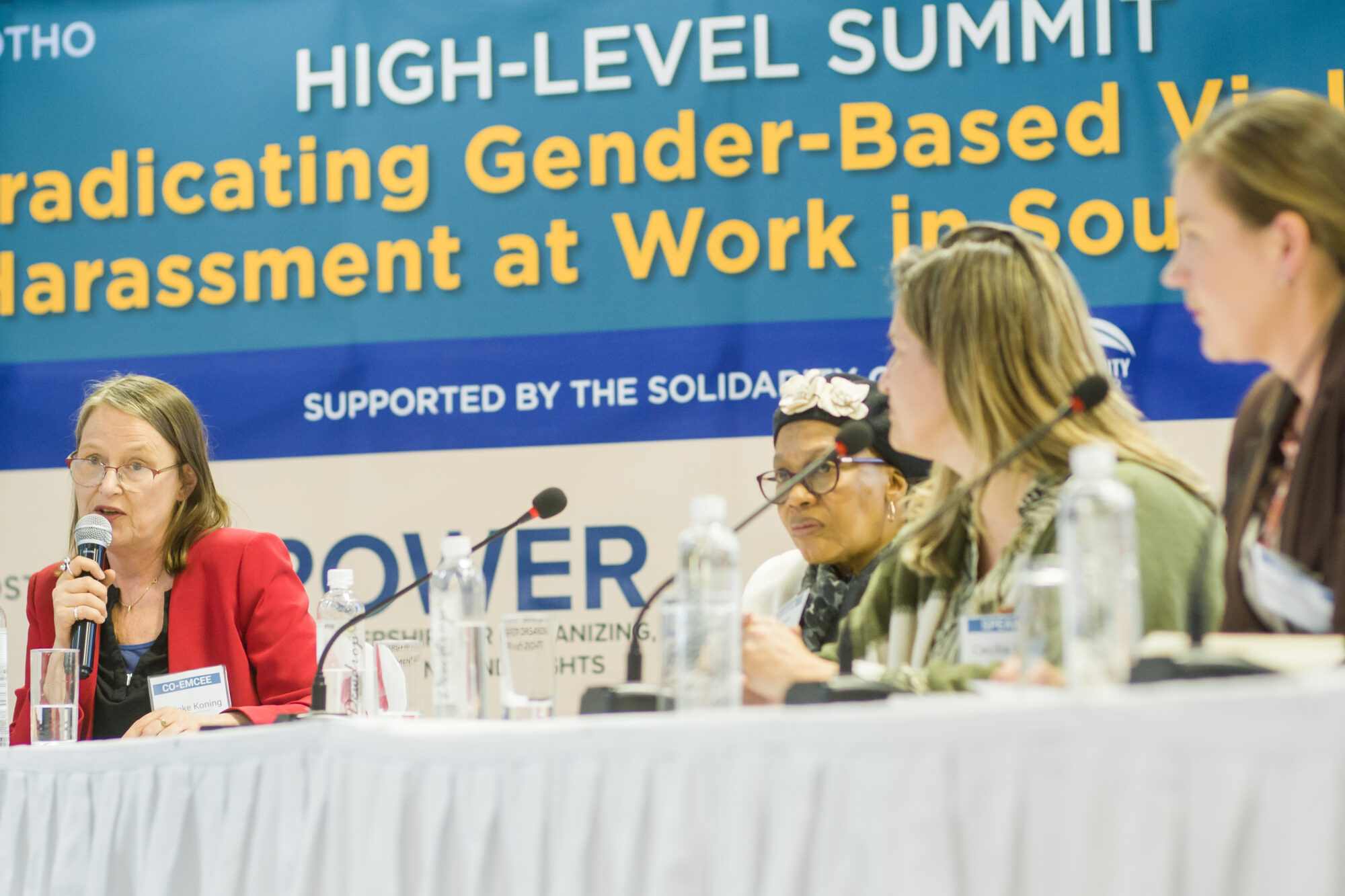
Collective bargaining agreements are the most effective mechanism for implementing progressive laws in Argentina’s experience, said Cecilia Cross, Argentina’s undersecretary for inclusion policies in the world of work (below left). “For Germany, the reason to ratify is that C190 sends such a strong global signal—that it really defines globally what is harassment at work,” said Dr. Anna Montén-Küchel, first secretary, labor and social affairs, German missions in South Africa, Lesotho and Eswatini.
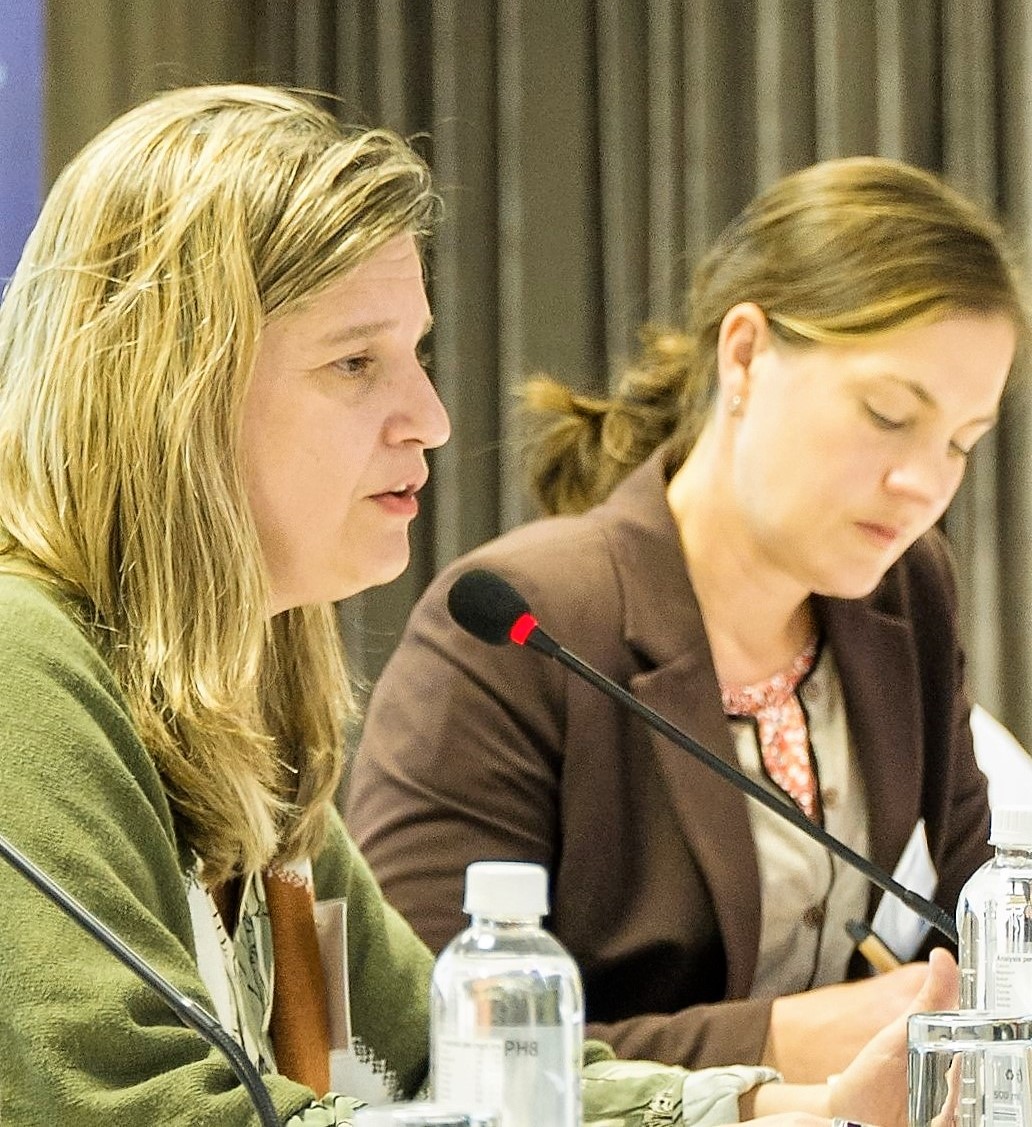
“Efforts must be made at the global level as national efforts alone are not enough to tack this issue, which knows no borders,” said Joaquín Perez Rey, Spain’s secretary of state for employment and social economy, by video. “Gender-based violence and harassment have no place in our workplace,” he added.

U.S. GLOBAL LABOR PRIORITIES
Kelly M. Fay Rodríguez described the Lesotho Agreements as a model for other employers in Lesotho and beyond, and M-POWER as a vehicle for mobilizing like-minded governments to participate. “Culture change is required to create the conditions that allow workers, their families and their communities to thrive,” she said.
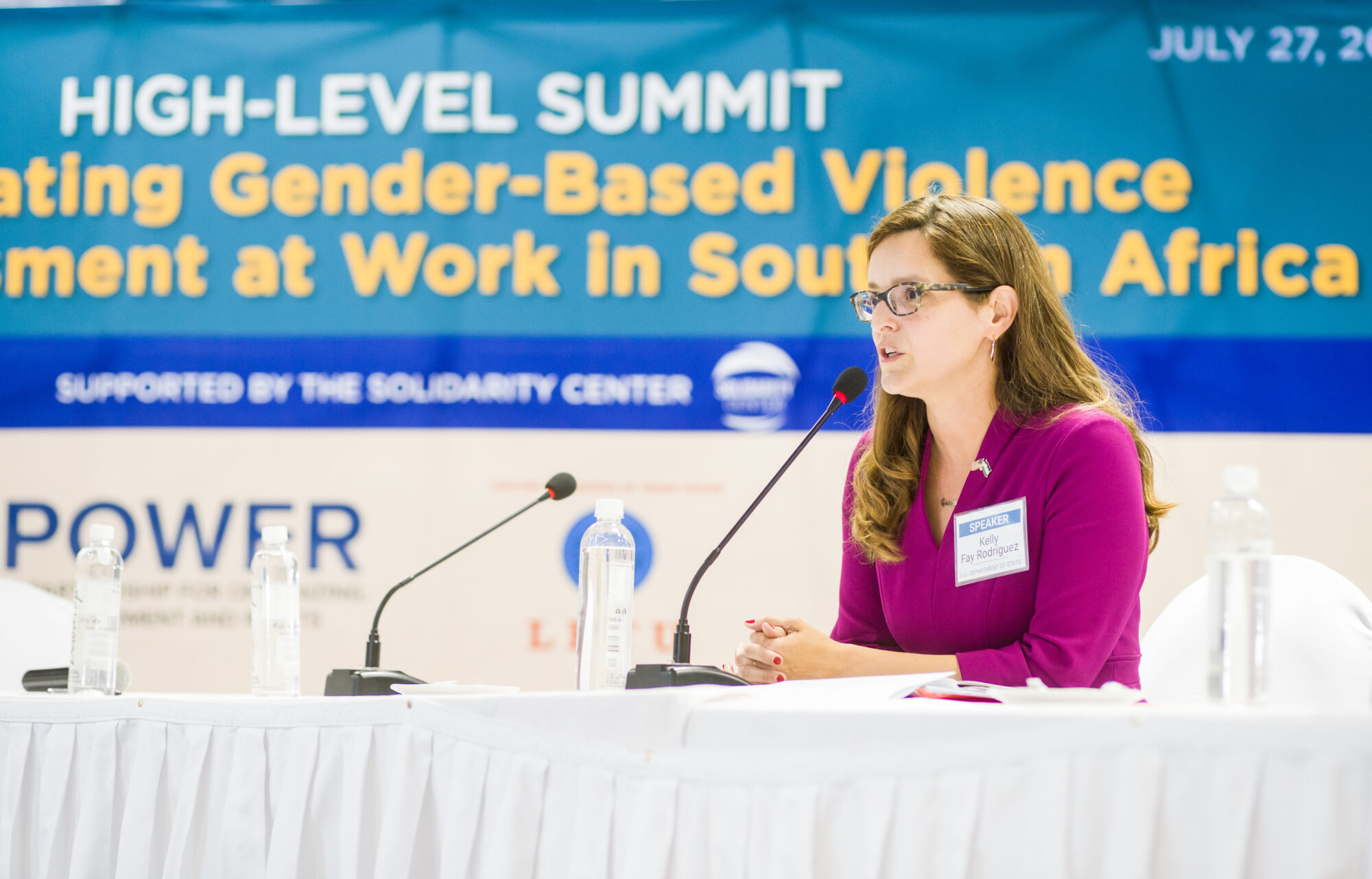
HOW WORKERS AND COMPANIES ARE ADDRESSING GENDER-BASED VIOLENCE AND HARASSMENT IN A GLOBAL SUPPLY CHAIN: FOCUS ON THE LESOTHO AGREEMENT
“I experienced so much harassment at the factory before the program at Nien Hsing was established,” said Popoti Ntebe, a UNITE member and factory worker. “Because of the high level of unemployment in our country, workers tend to be harassed because of poverty.”
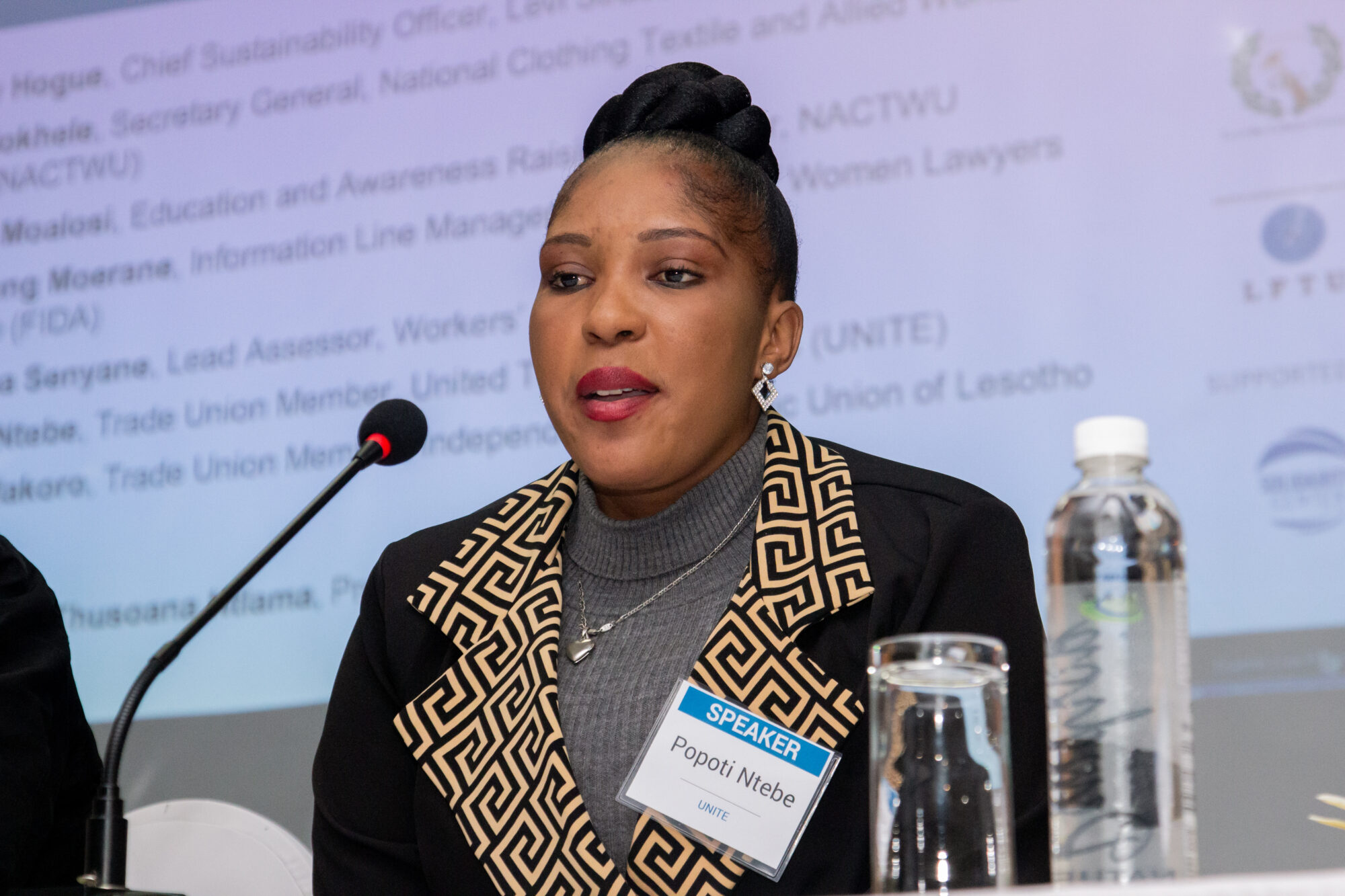
THE ROLE OF TRADE UNIONS IN CREATING SAFER, FAIR AND HEALTHY WORKPLACES FREE FROM HARASSMENT AND VIOLENCE
To protect rights better, unions and other activists must maximize pressure on government, said Teboho Tolo (R), LFTU president, presenting with Zingiswa Losi, president, Congress of South African Trade Unions (COSATU). “We must mobilize support!” he said.
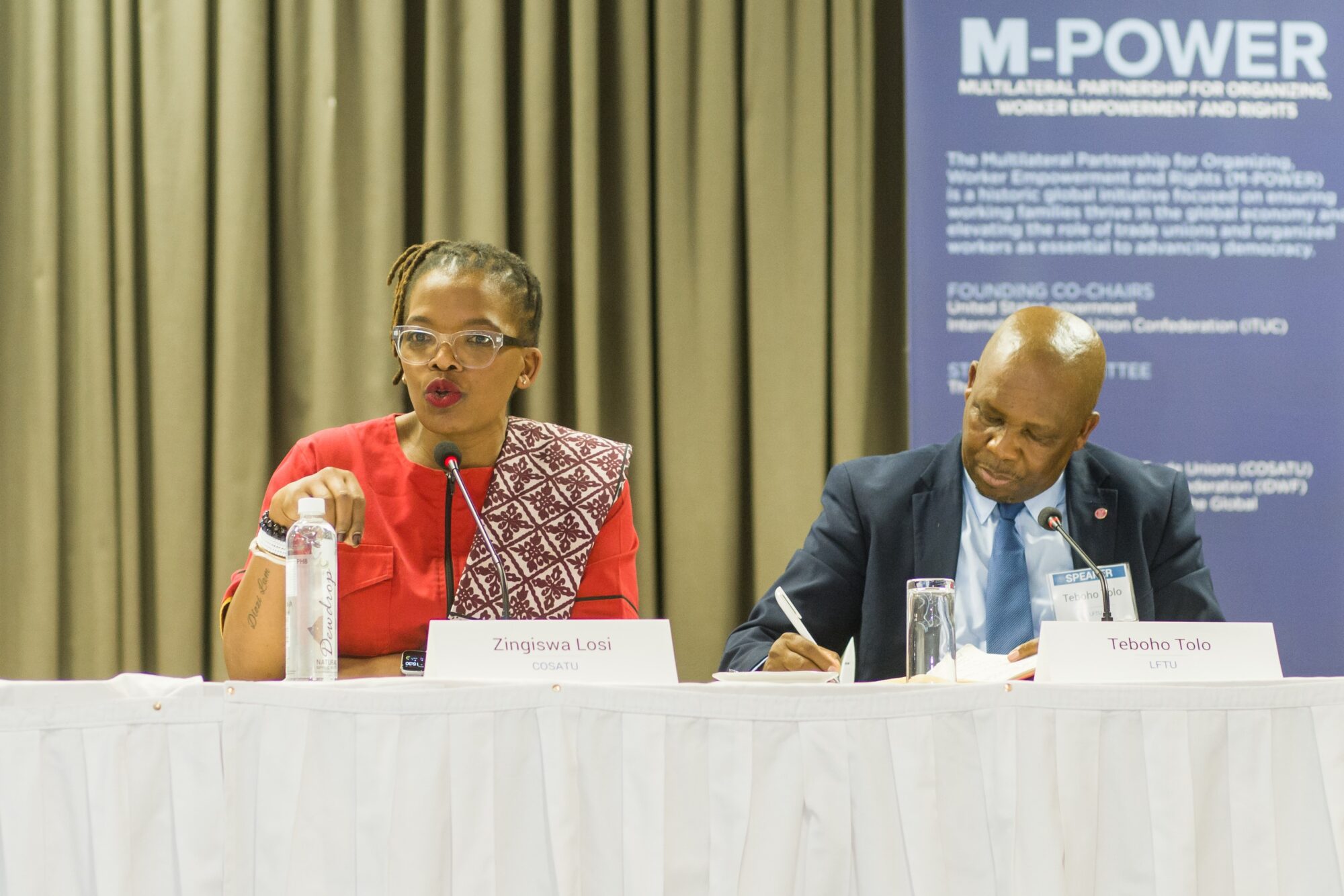
WOMEN WORKERS’ PARTICIPATION IN DEMOCRATIC GOVERNANCE
Sethelile Ntlhakana, Lesotho field representative for Worker Rights Consortium, moderates the session.
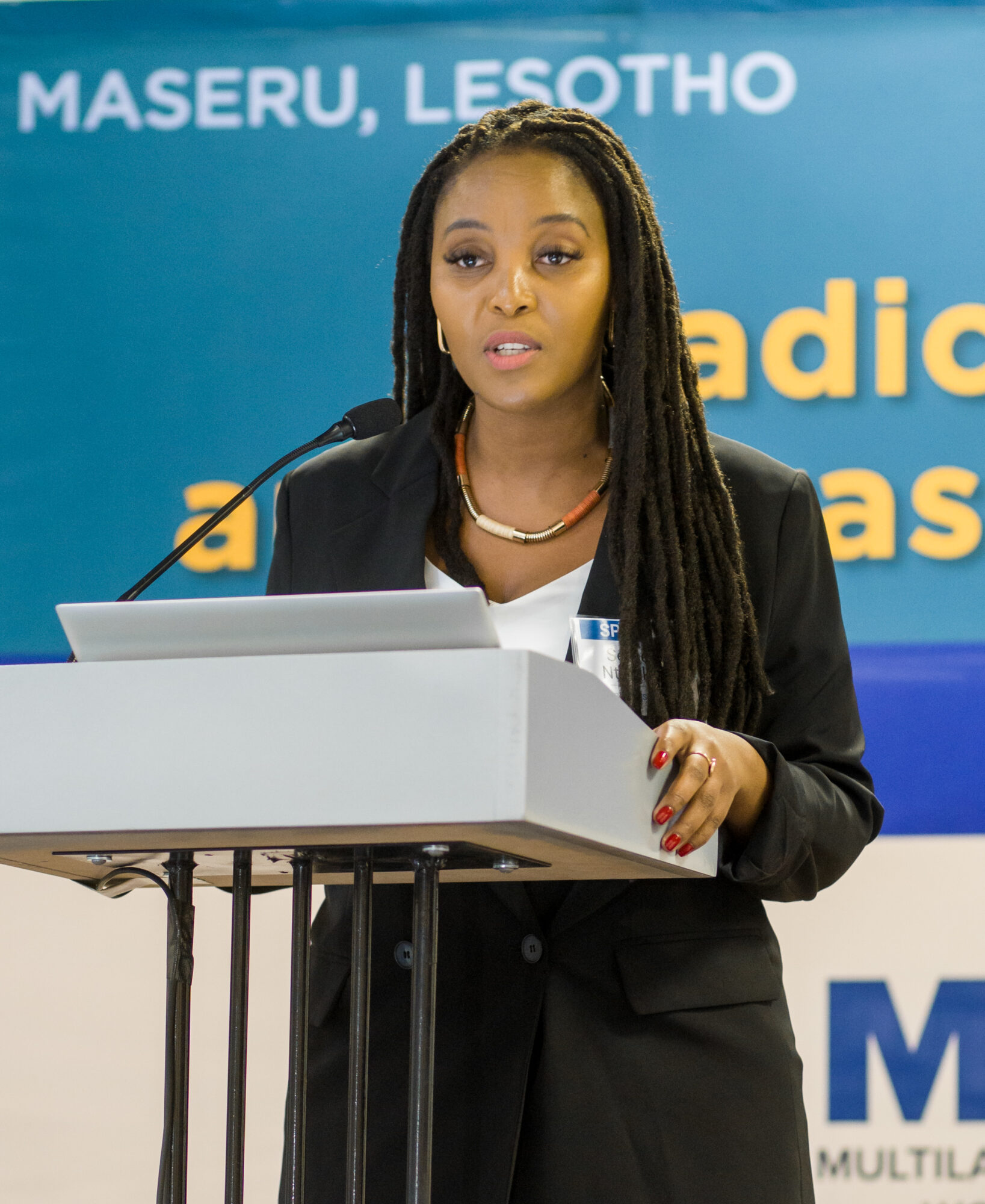
Gloria Kente, an organizer with the South African Domestic Services and Allied Workers Union (SADSAWU), in yellow, leads fellow panelists Mathekiso Tseote, NACTWU shop steward (left); Leboela Moteban, LFTU gender focal person; Thato Sebeko, LLC member; and Puleng Selebeli, United Textile Employees (UNITE) member, in song.
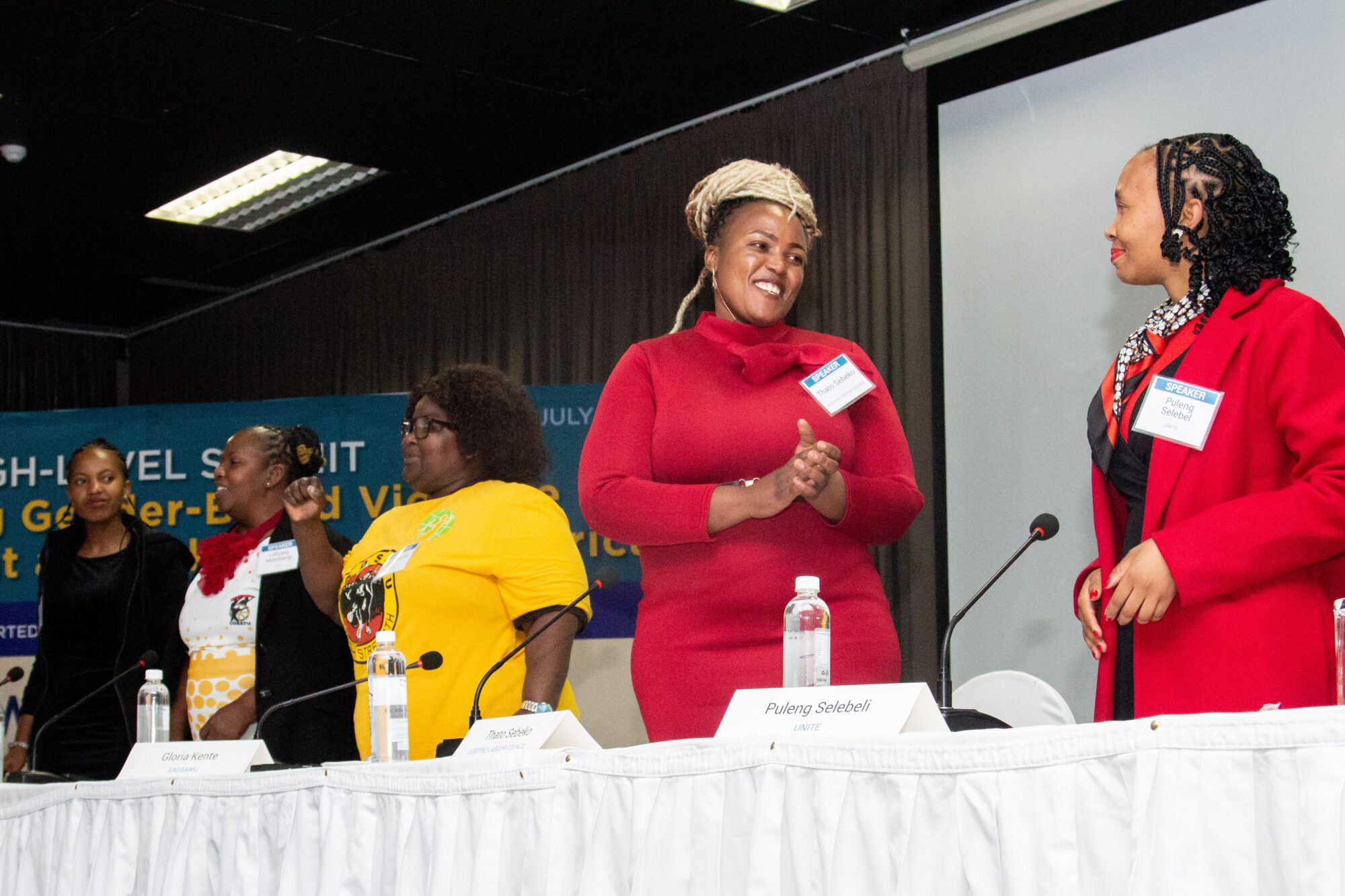
“No struggle can be won without women’s participation,” said Mathekiso Tseote.
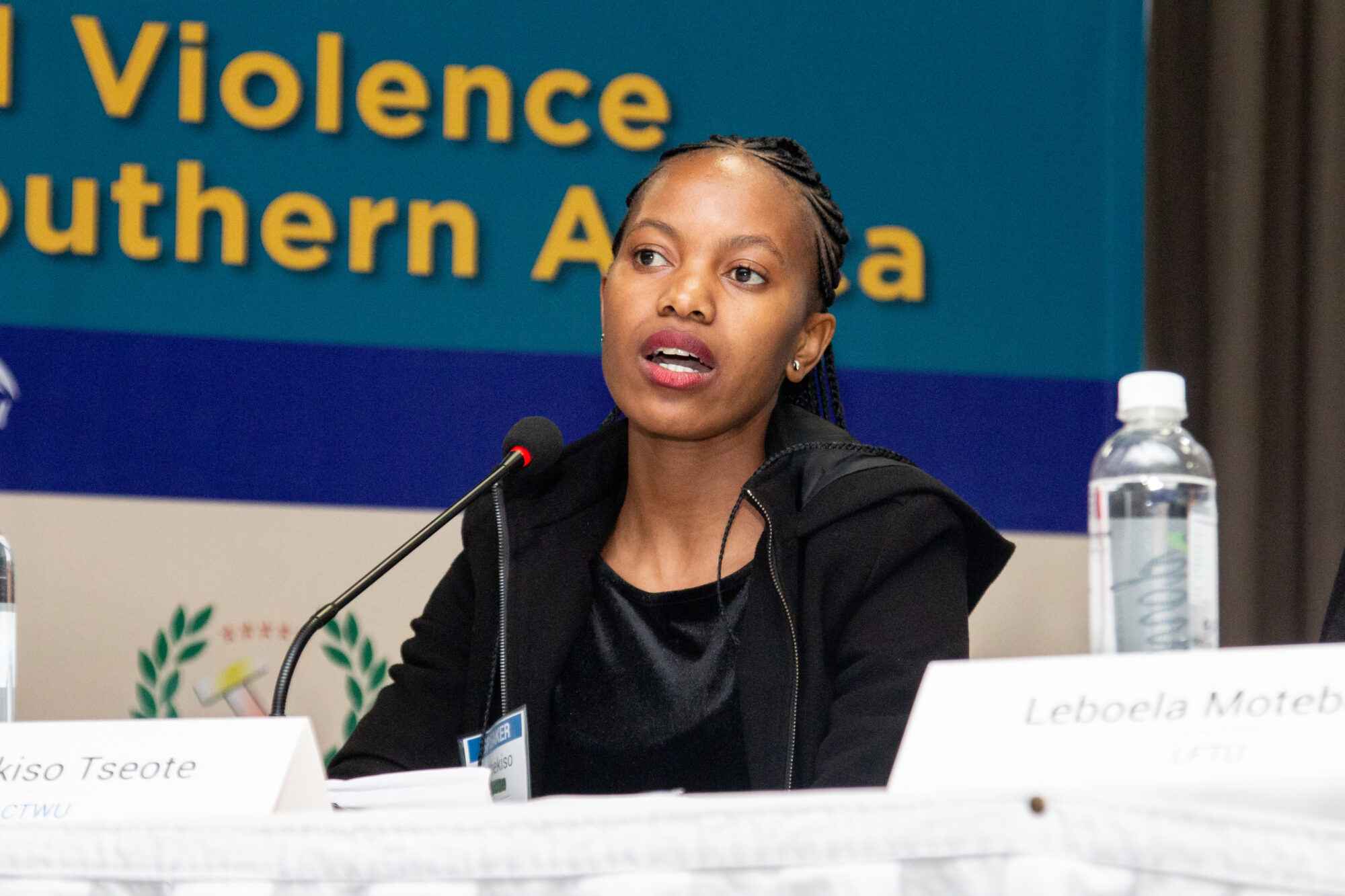
CLOSING STATEMENTS AND COMMITMENTS
“The world is watching; this is a precedent,” said Laura Gutierrez, AFL-CIO global worker rights coordinator, about the Lesotho Agreements. The AFL-CIO in partnership with its M-POWER colleagues wants to replicate this kind of program in the region and around the world, she said, because “M-POWER partners together recognize that in order to advance worker rights, ALL workers must have the power and ability to organize freely.”
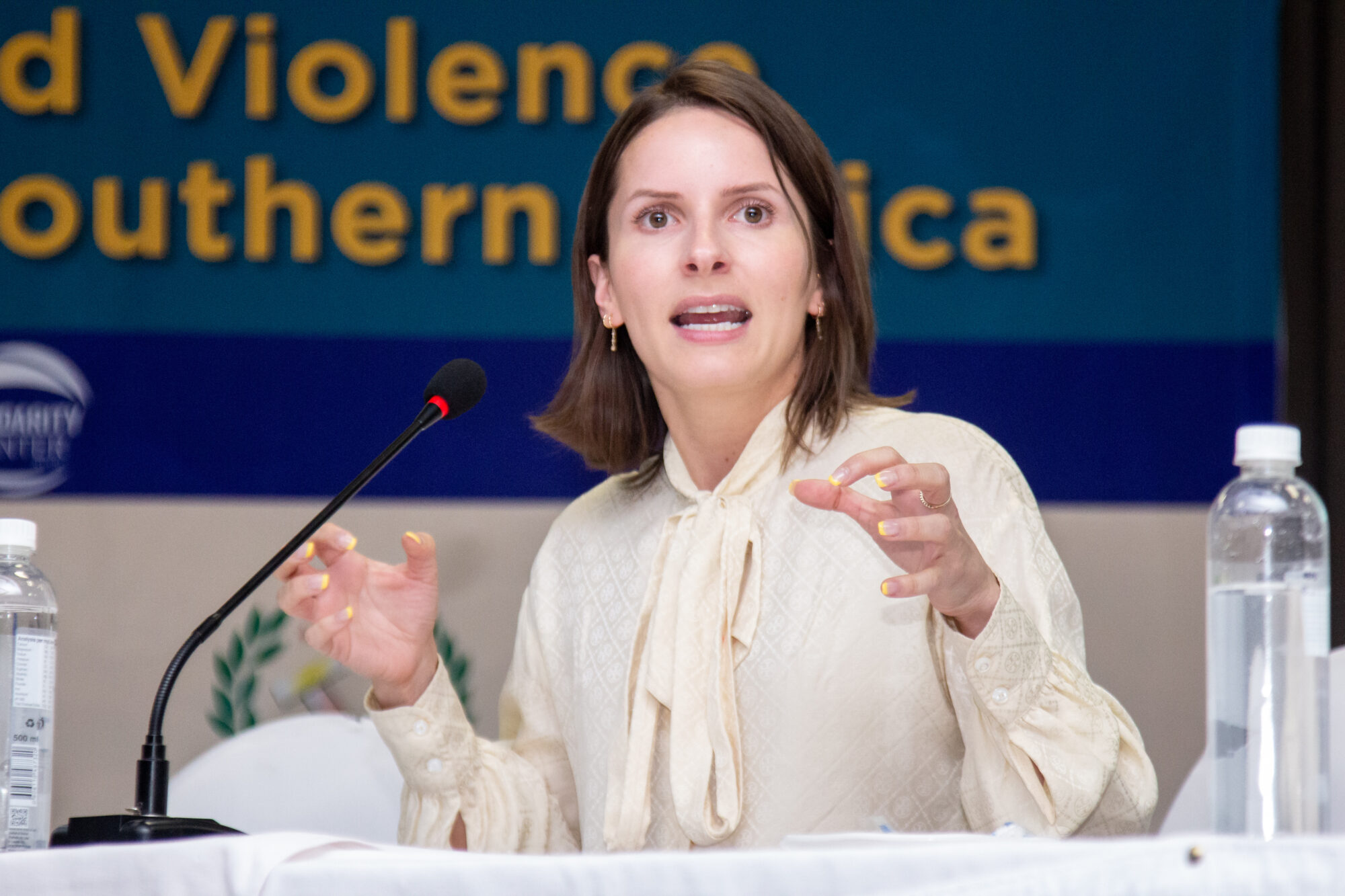
“We must highlight [C190’s] importance as a key instrument in bringing an end to violence and harassment at work and in particular ensuring that women have a safe place to work,” said Chris Cooter, high commissioner for Canada in South Africa, by video.

The M-POWER GBVH project’s launch in Lesotho marks the milestone that Lesotho has committed to upholding worker rights through promotion of decent work for all workers in all economic sectors, said Richard Ramoeletsi, Lesotho minister of public service, labor and employment, in closing remarks.
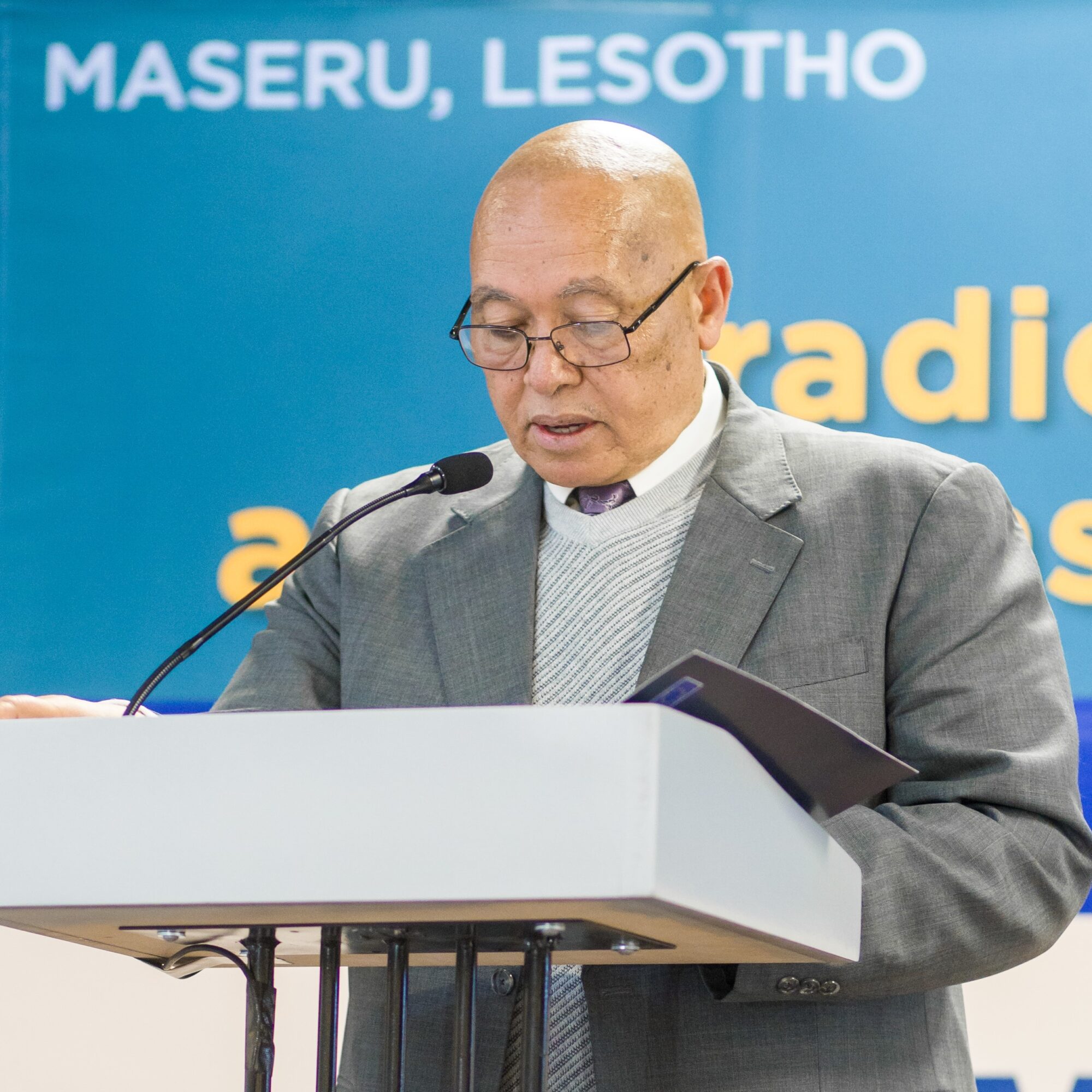
MORE FROM THE EVENT
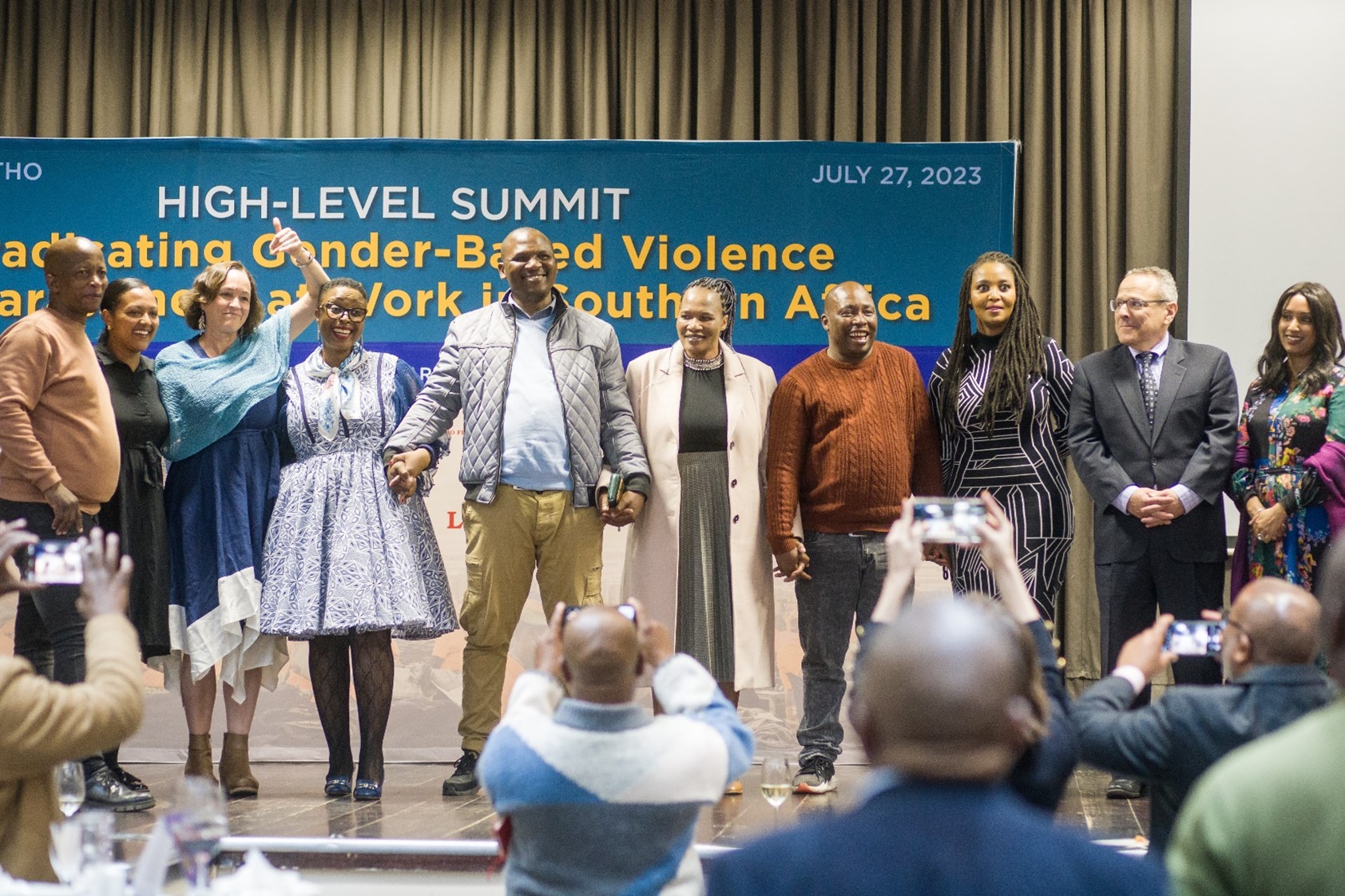
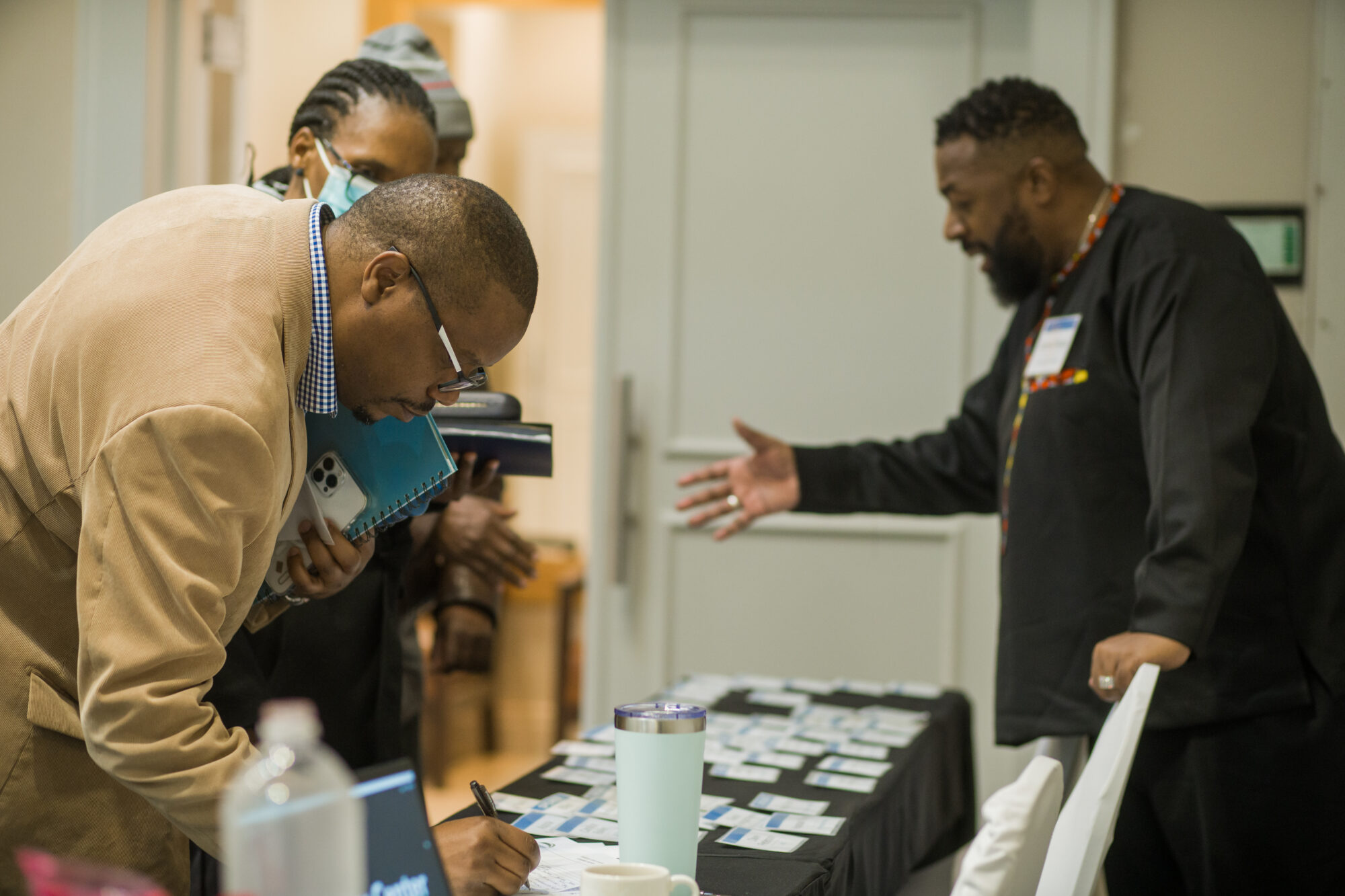
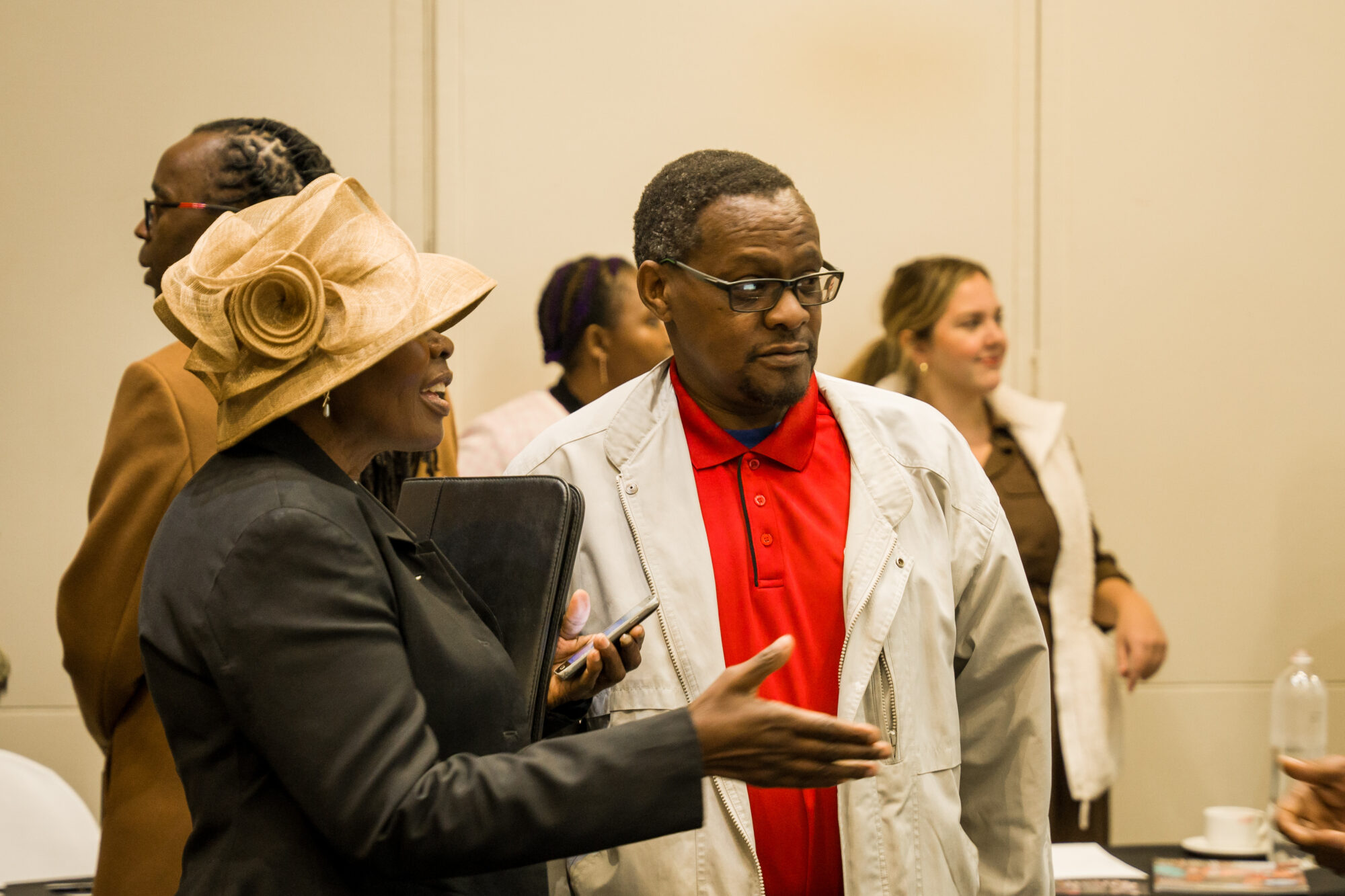
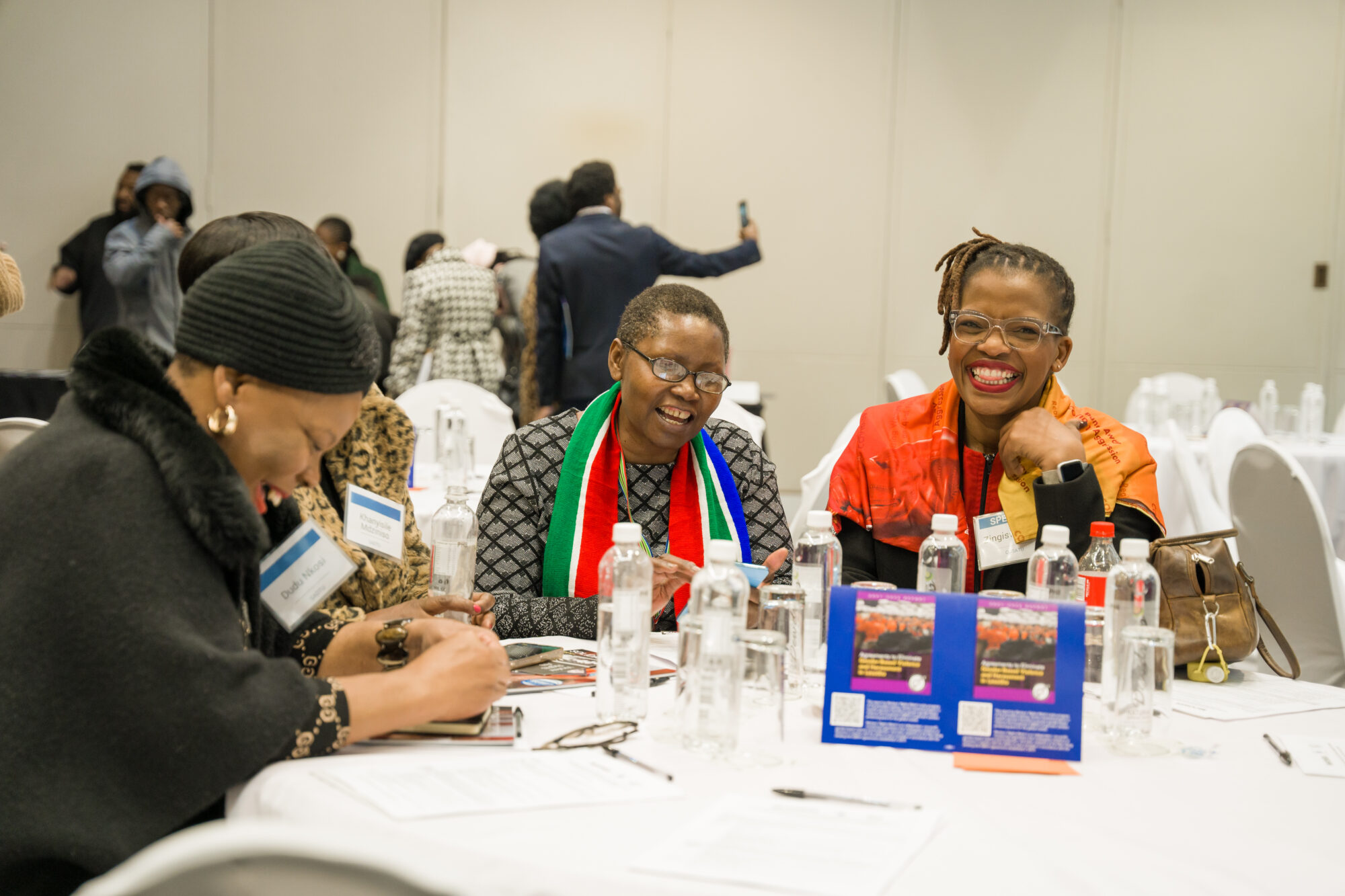
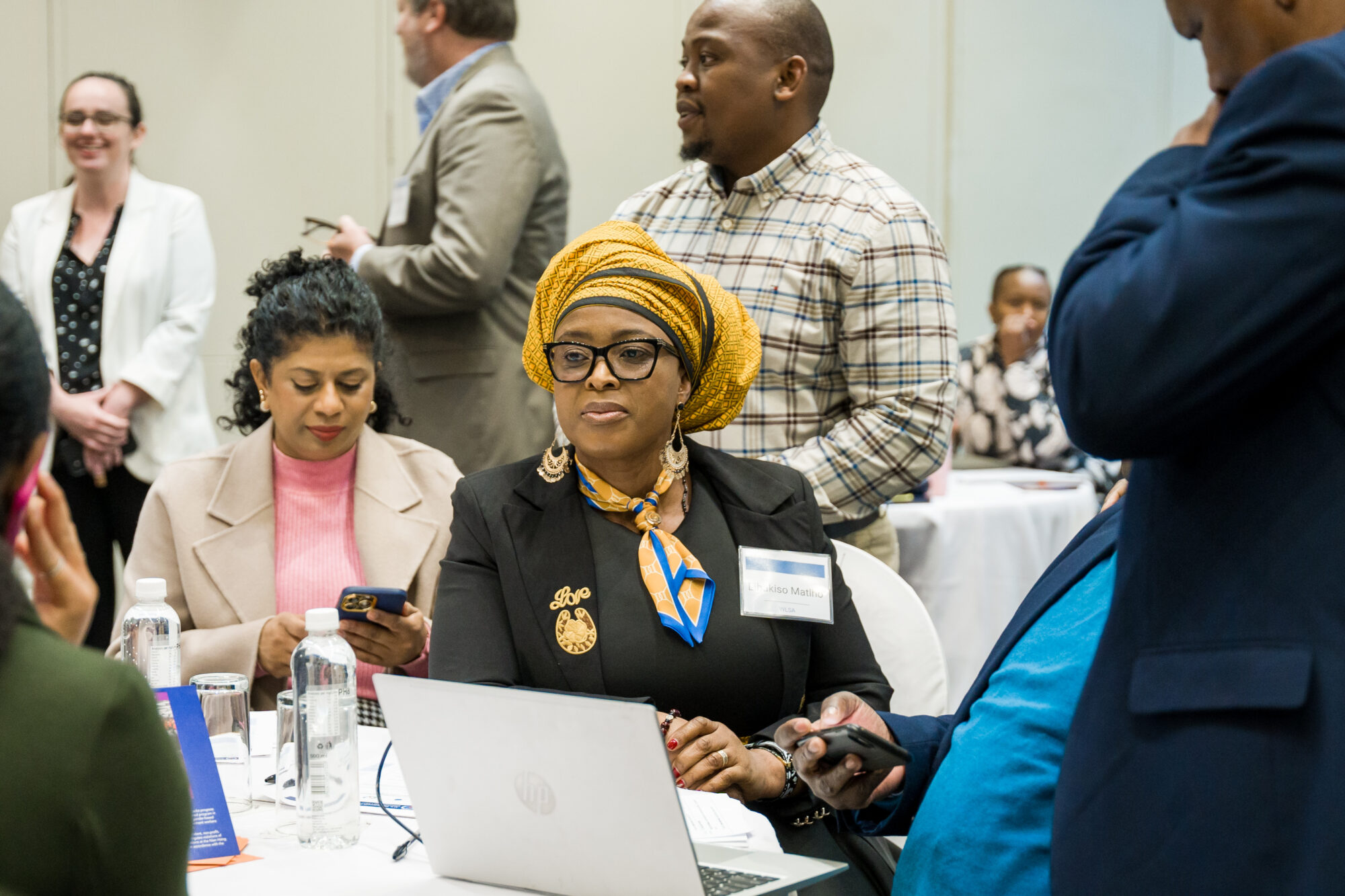
* M-POWER is a historic global initiative focused on ensuring working families thrive in the global economy and elevating the role of trade unions and organized workers as essential to advancing democracy. The government of the United States and the International Trade Union Confederation (ITUC) co-chair M-POWER, joined by steering committee members: the governments of Argentina, Canada and Spain; the International Domestic Worker Federation; the Congress of South African Trade Unions (COSATU); the AFL-CIO; and Funders Organized for Rights in the Global Economy (FORGE). Additional partners include the governments of France, Germany and South Africa, Business and Human Rights Resource Centre, Global Labor Justice-International Labor Rights Forum, ProDESC, Solidarity Center and Worker Rights Consortium.




 IN THEIR OWN WORDS: WORKERS ADDRESS GENDER-BASED VIOLENCE & HARASSMENT IN SOUTH AFRICA’S GARMENT FACTORIES AND CLOTHING RETAIL STORES
IN THEIR OWN WORDS: WORKERS ADDRESS GENDER-BASED VIOLENCE & HARASSMENT IN SOUTH AFRICA’S GARMENT FACTORIES AND CLOTHING RETAIL STORES IN OUR OWN WORDS: WORKERS ADDRESS GENDER-BASED VIOLENCE AND HARASSMENT IN GARMENT FACTORIES IN BANGLADESH
IN OUR OWN WORDS: WORKERS ADDRESS GENDER-BASED VIOLENCE AND HARASSMENT IN GARMENT FACTORIES IN BANGLADESH





















